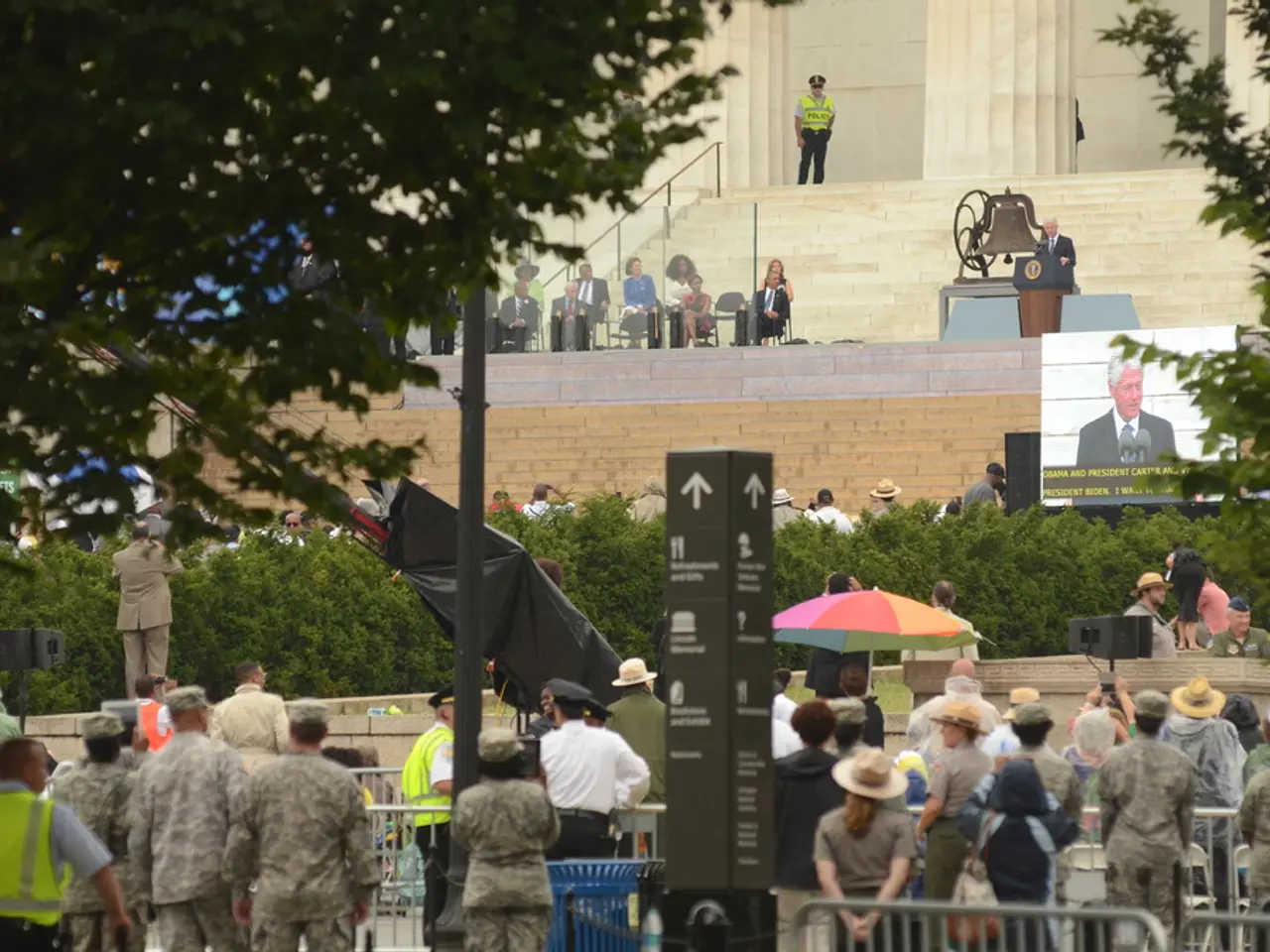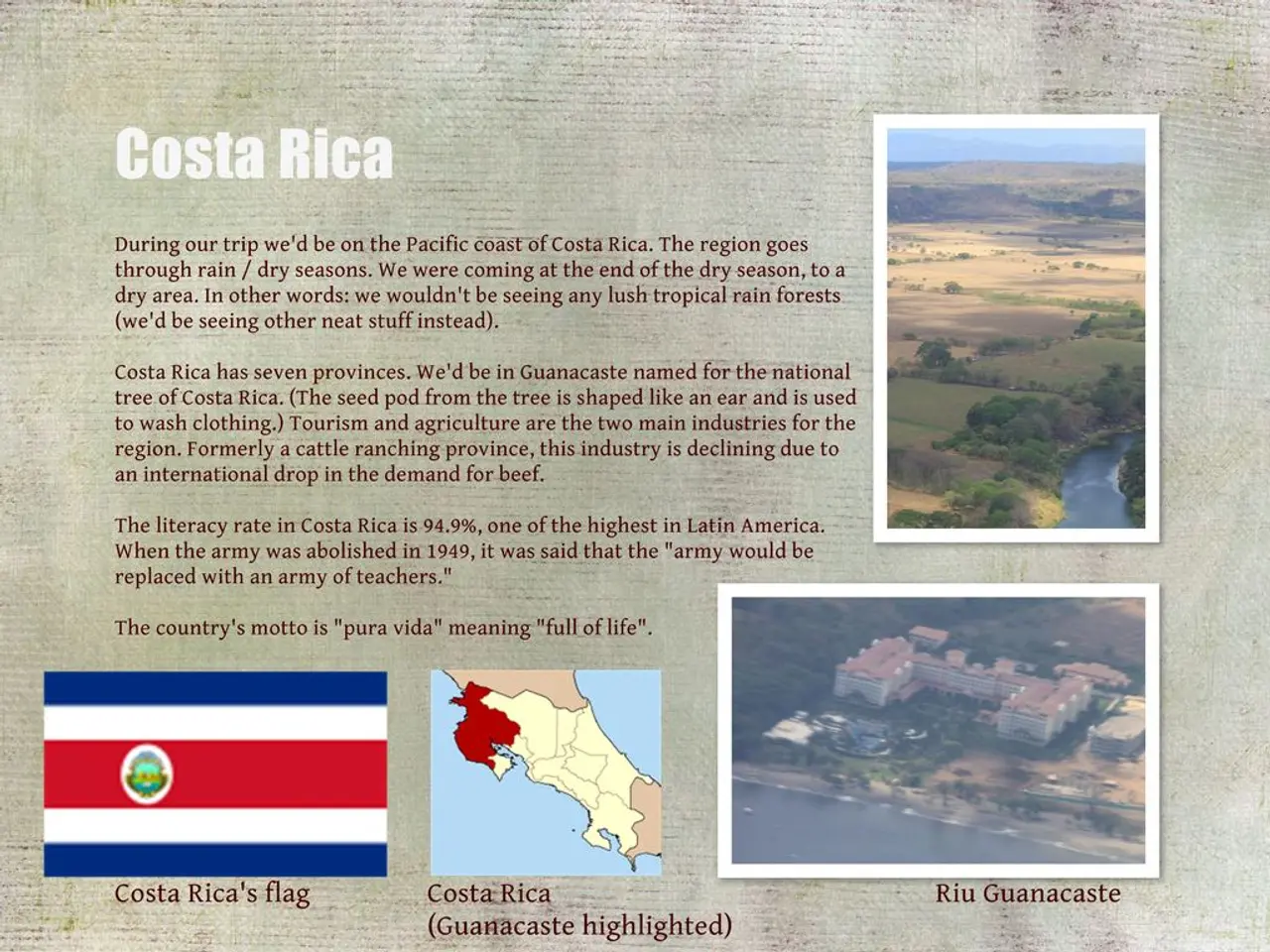Trump's claimed impact on nuclear facilities is "overstated", according to Khamenei, who issues a warning against any future hostile actions.
In a fiery speech on Thursday, Iran's Supreme Leader, Ali Khamenei, warned that any future aggression against Iran would come at a steep cost. Directly addressing U.S. President Donald Trump, Khamenei stated that accessing key American military bases was a significant achievement and suggested that such actions could be repeated if provoked.
With Israel and America supposedly licking their wounds after a recent standoff, Khamenei celebrated what he deemed a Persian victory over the Hebrews and Americans. He stated that Israel had practically collapsed under the blows of the Islamic Republic, with the United States intervening because of the potential destruction of the Zionist regime.
On the regional front, Iranian Foreign Minister Abbas Araghchi is deliberating whether diplomacy with the U.S. is worthwhile. Following a series of attacks on Iran's main nuclear facilities, Iran counterattacked with bombings on American installations in the Middle East. Despite Trump's claim of destroying much of Iran's nuclear capacity, Khamenei insisted that the United States "achieved nothing significant" in its attacks on Iranian nuclear facilities.
The Dance of Superpowers: US-Iran Enmity, From Revolution to Trump's Strike
Leaving aside claims of an unilateral ceasefire, Khamenei maintained that Israel had nearly collapsed following Iran's attacks, while Trump inflated the impact of American missiles on Iranian nuclear sites. The U.S., however, remains steadfast in its assertion of the attacks' impact.
Defense Secretary Pete Hegseth has reinforced the success of the bombing of Iran's nuclear facilities in Fordow, Natanz, and Isfahan, stating that there is no evidence of missing uranium stocks. President Trump doubled down on his support for the offensive, declaring that Iran could not transport its enriched uranium due to its "heavy, dangerous, and slow" nature.
Tensions with the media were evident during Hegseth's press conference, with the defense secretary strongly criticizing leaks and accusing the press of "minimizing" the military impact for political reasons. The White House declared that it maintained communication with Iran regarding potential agreements and was on a diplomatic track with Tehran.
Netanyahu: United Against Common Enemies
Following Khamenei's declaration, Israeli Prime Minister Benjamin Netanyahu pledged to continue working with Trump to confront common adversaries, free hostages, and expand the circle of peace. This followed Trump's praises of Netanyahu as "perhaps the greatest warrior in the history of Israel" and a call for an end to the "witch hunt" against the Jewish leader.
Netanyahu also emphasized that Israel should capitalize on the outcome of its war with Iran, with opportunities for peace to be seized. In a report by Israel Hayom, citing an anonymous source, Netanyahu and Trump agreed this week to a speedy conclusion to the Gaza conflict, possibly within two weeks.
The agreement may involve expanding the Abraham Accords with Israel's Arab neighbors to include Saudi Arabia and Syria, with Special Envoy Steve Witkoff stating that "important announcements" regarding countries joining the Abraham Accords are forthcoming.
The Storm That Broke Over Iran
The United States entered into war with Iran on Sunday with an unprecedented attack on the heart of its nuclear program. This marked the ten-day anniversary of Tel Aviv's attack on the Persian military cupola and part of the country's military infrastructure, with the stated aim of halting the nuclear program allegedly being conducted within the country. In response, 24 lives were lost in Israel, and the death toll in Iran surpassed 400, according to the Ministry of Health, with a human rights group in Washington suggesting that the casualties may be as high as 850.
In the heat of the conflict, the Islamic Republic partially destroyed Israel's Iron Dome defense system, which has long been responsible for protecting the Jewish state's airspace. The U.S. and Iran's long, troubled history has been punctuated by escalating tensions and military confrontations, with Iran's nuclear program often at the center of contention. Diplomatic efforts to resolve these issues continue amid ongoing concerns over Iran's military capabilities and nuclear ambitions.
- The average casualty count in Israel and Iran from recent war-and-conflicts has been disputed, with the Ministry of Health in Iran suggesting over 400 deaths and a human rights group in Washington estimating as high as 850.
- Amidst ongoing policy-and-legislation debates and general-news reports, Iranian Foreign Minister Abbas Araghchi is weighing the possibility of engaging in diplomacy with the U.S., following Iran's counterattacks on American installations in the Middle East.






